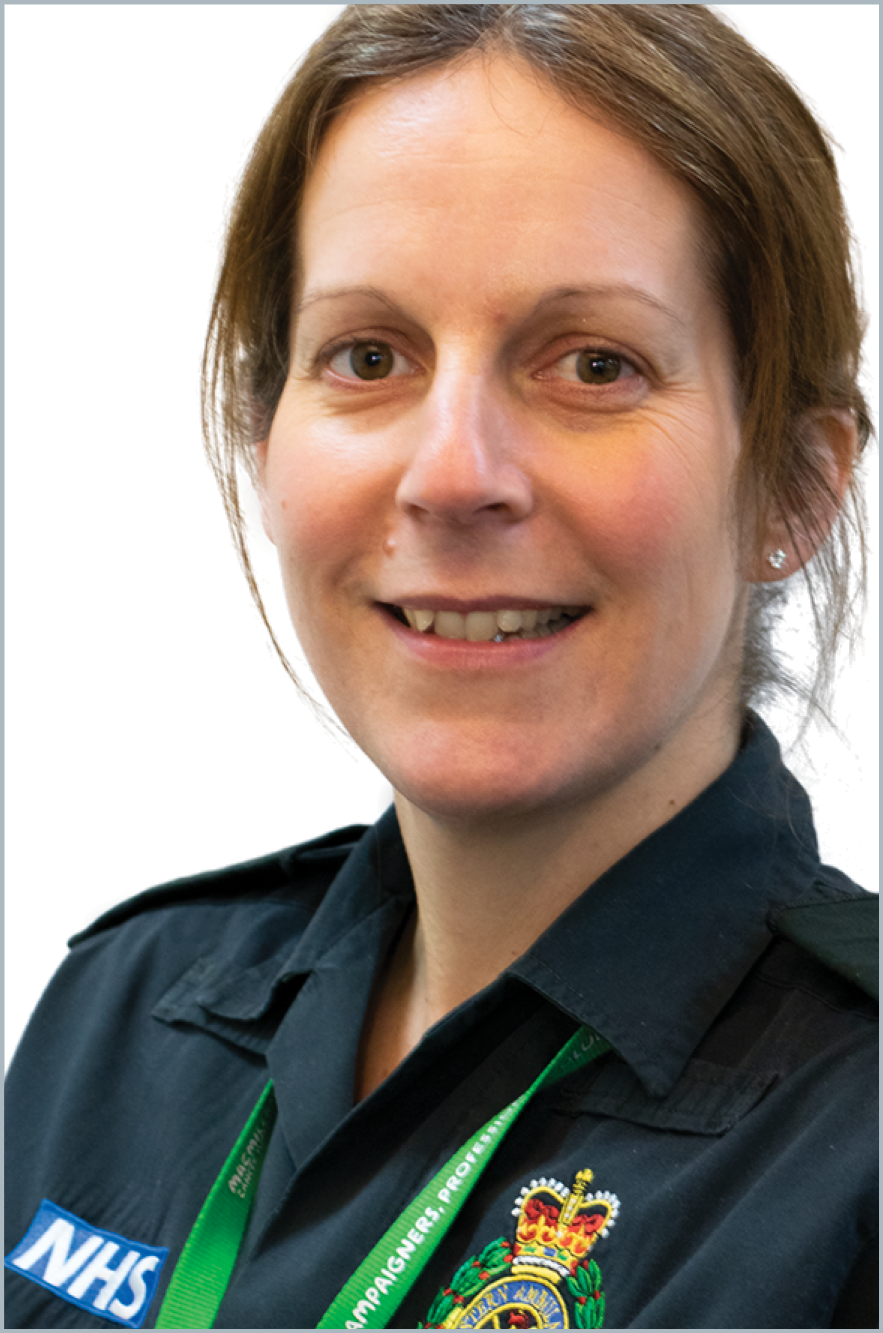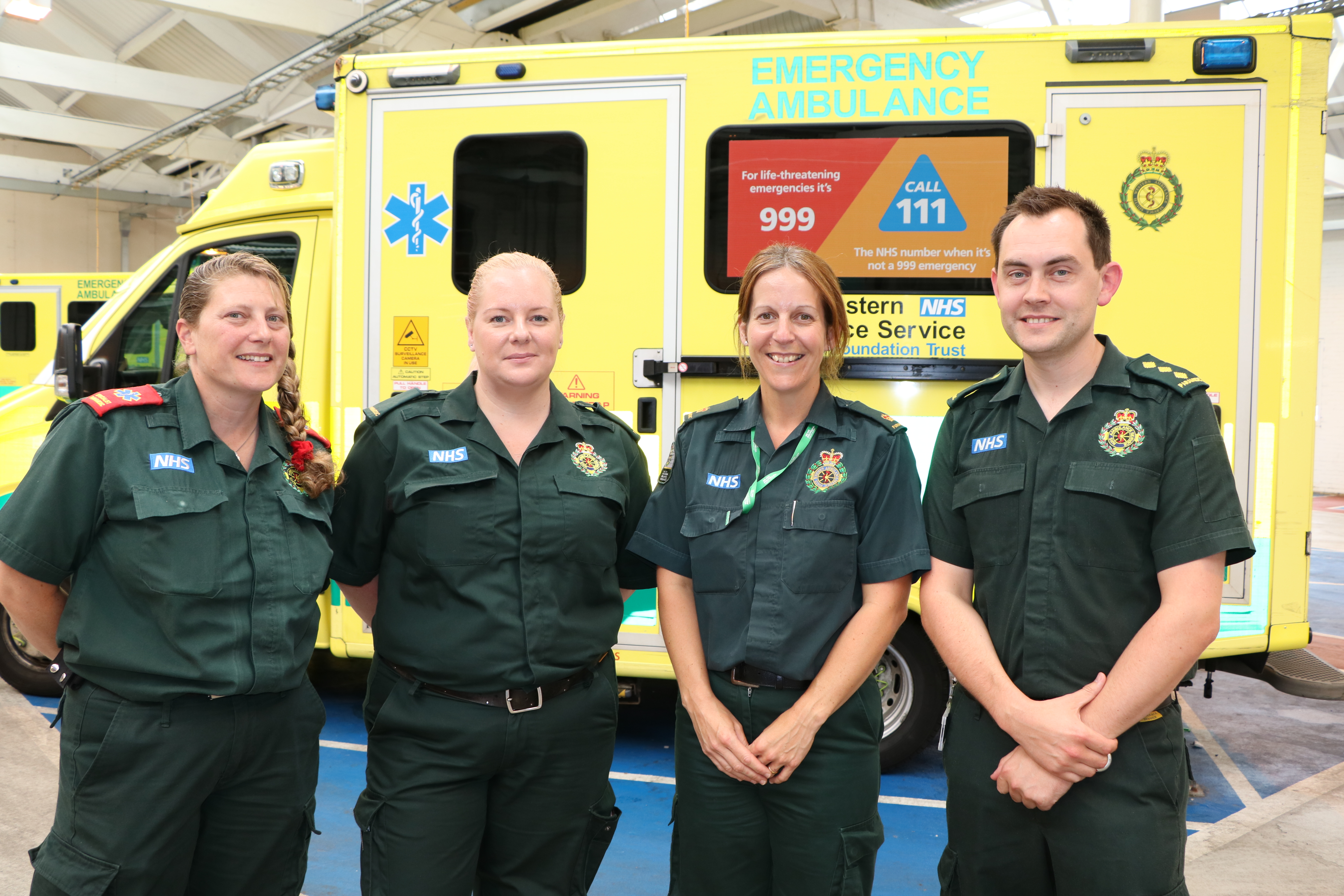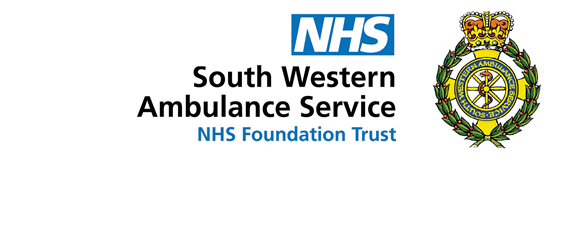
Joanne Stonehouse
Macmillan paramedic
South Western Ambulance Service NHS Foundation Trust

Background
The trust covers seven counties and 13 Clinical Commissioning Groups (CCGs). Geographically it reaches over 10,000 square miles, from Cornwall and the Isles of Scilly through to Gloucestershire and Wiltshire. While it has a mainly rural population, it also covers large towns and cities including Bristol, Plymouth, Swindon, and Gloucester. It employs 4,500 staff.
In its last CQC report, the trust was rated ‘good’ in the well–led domain. There was, it said, “effective, experienced and skilled leadership, a strong vision for the organisation, and embedded values. Leadership had strengthened, and the new structure in frontline services would being [sic] local leadership closer to staff, patients and stakeholders. Patient care was a top priority for the trust.”
CQC also remarked on a deep commitment to learning, something Sarah James, deputy director of nursing and quality, says has become a key priority.
“We’ve implemented leadership training and development, and we’re looking to embed quality improvement across the trust so it becomes a cultural norm.
“I’ve only been with the organisation 17 months now. Coming in with fresh eyes, I think the trust has recognised some of the culture hasn’t been conducive to allowing initiatives to get off the ground.”
Historically, ambulance services may have tended to have more of a command and control approach than might be found in an acute trust. This style of management is necessary in emergency situations but doesn’t encourage innovation by staff. But that’s starting to change, as the trust adopts a more proactive approach to caring for people across its huge area.
“We talk a lot more about being a system leader,” says Sarah. “For example, we are leading on winter plans across the whole region. There’s a real focus on how we work together for the benefit of the patient.”

Managing end-of-life care
Working with Macmillan Cancer Support, the trust has developed an innovative approach to caring for people at the end of their life, particularly those with cancer. Macmillan is providing more than £1m over four years for the project, which began in 2015.
Key to this has been training paramedics to recognise the signs that a person is dying, when the most appropriate place for them may not be an A&E department. Although the patient may prefer to die at home, paramedics sometimes need to offer advice and support to relatives who are frightened or in a state of panic, wanting the patient to go to hospital.
“It’s taken a good few years to recognise we are a key provider for this patient group,” says Joanne Stonehouse, Macmillan paramedic and project lead. The trust has also recruited three specialist nurses to help develop the project, one for each of the trust’s divisions.
The nurses found working in an ambulance trust was very different from an acute provider. “It’s a challenging role for them,” says Joanne. “They ride out with the crews, primarily in an observational role, and work in the clinical hub to understand how the service works.”
The nurses would help paramedics find out if a plan was in place for a patient’s medical needs at the end of their lives, making a situation easier to manage and avoiding an unnecessary admission.
“We are predominantly a life-saving service, but we also want to be able to support a good death,” says Joanne. That could involve giving a patient pain-reducing tablets already prescribed by their doctor or using a syringe driver already made available by the patient’s nurse.
The paramedics also have links to hospital oncology teams so they can seek advice about whether an admission is appropriate.
With such a wide geographical area to cover, the paramedics are seeing first-hand what end of life care is like: “There are pockets of really good practice and the frontline staff are able to feedback on where they have the challenges. That’s fed in to where we need to prioritise,” says Joanne.
Up to the end of 2018, 1,679 clinicians had been given specialist face-to-face training on end of life care with many more using E-learning and distance learning approaches.
One paramedic described how that training helped when they visited a 60-year old woman with cancer who was breathless, in pain and agitated.
“She had told her family she wanted to go to hospital. Thankfully she had her ‘just in case’ medications and we were able to make her comfortable and liaised with the district nurse about her syringe driver. Once comfortable she wanted to remain at home to die.”
The course gave me so much more confidence in administering her medication, discussing with the patient about her death and what she wanted and ensuring that the patient was in control.
South West Ambulance Trust
